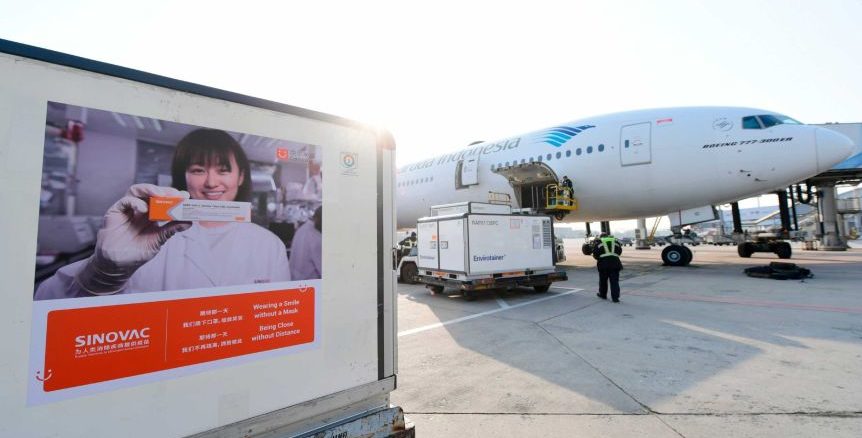
TUESDAY DEC 8
Rose Tattoo rocker Angry Anderson has told a court he has been “condemned to a life of sadness” by the brutal death of his son.
Liam Anderson died in November 2018 after Mathew Flame stomped on his head repeatedly in a Sydney park while on a drug bender because he thought his friend had turned into a demon.
During the trial, jurors heard Flame, 22, took up to 10 MDMA pills at a Darlinghurst party before ending up at a park with Liam on the northern beaches.
He was last month found guilty of manslaughter in the NSW Supreme Court.
Today, Angry Anderson, 73, gave his victim impact statement.
“No day of celebration will ever be the same for us now, because Liam is not there to celebrate or be celebrated,” he said.
“I am condemned as we all are to a life of sadness.
“I now fully understand the meaning of the phrase having a hole in my heart.
“When he died part of me died with him.”
Angry Anderson said another son had phoned him to inform him of Liam’s death.
“I can never forget the sound of his voice,” he said.
“Nothing could have prepared me for the haunted look in my children’s eyes, the pain, the hopelessness, the anger and the overwhelming grief.
“We would be bound together forever in our grief.”
During the trial a statement from a witness who said Flame showed “no emotion” as he “stomped” on Liam’s head in Pavilion Reserve at Queenscliff was read to the court.
American tourist Trevor Buchert was holidaying in Australia when he saw the attack and told police: “I could see the victim turn his bloodied head towards me and he called out, ‘Help me, help me, help me,’ in a desperate manner as loud as he could.”
###
Indonesia has received its first shipment of coronavirus vaccine from China, as the Government plans a mass vaccination program aimed at reopening Bali next year.
On Sunday, Indonesian President Joko Widodo said 1.2 million doses of a vaccine from Chinese pharmaceutical company Sinovac had arrived.
It was also expecting another 1.8 million doses and raw materials — which could produce about 45 million doses — to come next year.
The vaccine, known as CoronaVac, still needs approval from Indonesia’s food and drug agency (BPOM) while the Government continues to prepare for distributing it to Indonesians, according to Mr Widodo.
Bali residents could be among the first to receive the Chinese drug, in order to make the island “a green zone at the start of next year”, according to China’s state-owned Xinhua news agency.
China is hoping to help produce up to 610 million vaccine doses for countries in poverty by the end of the year.(ABC News: GFX By Jarrod Fankhauser)
In the global race to develop COVID-19 vaccines, China has been among the frontrunners.
It has late-stage trials underway in at least 16 counties across Asia, Africa and Latin America.
The Turkish Government said in an official statement it had ordered 50 million doses of the CoronaVac last week, and expected its first shipment this Friday.
Though Beijing has a huge task to vaccinate its 1.4 billion citizens, Chinese President Xi Jinping has pledged to provide the vaccines as a “global public good”.
He has signed deals with Brazil, Chile, Indonesia, Philippines and Turkey, before showing the world the result of final testings.
###
Surfers know they share the waters they love with sharks, but technology may soon offer some added protection from a possible encounter ,reports the ABC.
According to Southern Cross University researcher Andrew Colefax, the day is nearing that autonomous drones — which do not require a line-of-sight operator — will be able to offer shark detection at any point along the coastline.
“I feel like that’s around the corner,” Dr Colefax said.
He has spent four years of intense research and development in the field of drones and shark detection, and said artificial intelligence (AI) and machine learning will be a game changer on beaches in the near future.
“There is continual research in this method to make it more reliable and provide a better level of safety,” Dr Colefax said.
Dr Colefax said autonomous shark-detecting drones could patrol for longer periods and over longer stretches of coastline without an operator.(Supplied: Southern Cross University)
Drones are operating on many popular swimming beaches across the state under a Surf Life Saving NSW and State Government program, however they require a pilot to operate them within the line of sight.
“It does limit them a little bit to the area that they can cover and having to rely on a pilot means it can be considered … a bit resource intensive,” he said.
Dr Colefax said another limitation was piloted drones under use were subject to a surf club’s hours of operation and tend to operate only the vicinity of surf clubs, which leaves surfers vulnerable.
“The majority of shark encounters tend to involve board riders rather than swimmers, so it’s important that we develop technology with the intention to provide surveillance beyond the red and yellow flags and hours of beach patrols,” he said.
SheSociety is a site for the women of Australia to share our stories, our experiences, shared learnings and opportunities to connect.

Leave a Reply